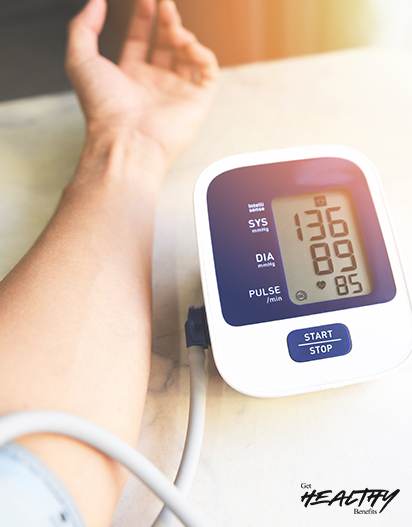Ozempic and Weight Loss: Does It Work, and What Are the Risks and Benefits?
If you are having trouble losing weight and dealing with type 2 diabetes, you may have seen Ozempic. Recently it has become extremely popular. Diabetes drug Ozempic for weight loss has the potential to help with weight loss
While Ozempic is not specifically designed as a weight loss pill, studies suggest that individuals taking it may experience modest ozempic weight loss during treatment. In fact, the main ingredient in Ozempic is called "semaglutide." The FDA has approved higher doses to help people with obesity and other weight-related health issues. For this specific purpose, the FDA named it Wegovy.
Now, because Wegovy is in short supply and information about the weight-loss effects of Diabetes drug Ozempic for weight loss has spread widely on social media, some people who do not have type 2 diabetes have started taking Ozempic use to lose weight, although it is not officially measured. It is called "off-label" use, meaning the drug is used in a way that the FDA does not specifically approve.
Now, let's examine the Ozempic more closely. We explore how it works, the potential risks to your health, and how effective it is for weight loss.
What is Ozempic?
Ozempic is a medicine you can only get with a prescription from a doctor, nd it is approved by the FDA (the US drug regulatory agency).
What is Ozempic used for?
The main purpose of Ozempic is to treat adults with type 2 diabetes. When people develop type 2 diabetes, their blood sugar levels can spike, and Diabetes drug Ozempic for weight loss is designed to help lower those levels. Studies cited on the Ozempic website have shown it improves blood sugar levels in adults with type 2 diabetes. It can also help reduce hemoglobin A1C, which indicates how well blood sugar has been controlled over time.
Additionally, for adults with type 2 diabetes who also have heart disease, Ozempic may help reduce the chance of complications such as stroke or heart attack. Ozempic's main ingredient is semaglutide, a drug that works by activating certain receptors in the body called GLP-1 receptors. These receptors are located in different body parts and play an important role in how our body responds to blood sugar management.
When semaglutide activates these nerves, it helps the body produce insulin, a hormone that helps regulate blood sugar levels when we eat. It also helps reduce the production of another hormone, glucagon, which can cause blood sugar levels to rise.
In this way, Ozempic helps lower blood sugar levels. To take Ozempic, you have to inject it yourself once a week. Depending on your physician prescribes, you can choose different dosages, such as 0.5 milligrams, 1 milligram, or 2 milligrams.
Where to inject ozempic?
Ozempic is an injection applied on the thighs, abdomen, or upper arms once a week. Studies have shown that Ozempic can help type 2 diabetics lose weight significantly. In one study, patients taking Ozempic lost an average of 12.4 pounds over 26 weeks.
How does Ozempic work?
Ozempic belongs to the class of drugs known as GLP-1 receptor agonists or GLP-1 drugs for short. These drugs work by acting similarly to the release of a hormone called glucagon-like peptide (GLP-1) from the digestive tract. GLP-1 helps lower blood sugar levels and promote a feeling of fullness. GLP-1 antagonists have been used by physicians for more than 15 years to manage diabetes and obesity. Over the years, these drugs have become increasingly effective and accessible.
What Does Ozempic Do?
Overall, Ozempic decreases appetite and increases feelings of fullness, leading to decreased appetite. It also empties the stomach slower, further reducing appetite.
In the past, these drugs had to be injected daily, sometimes even twice. But now, it only needs to be injected once a week. The dose has also been increased, which means you are getting higher doses of the drug to help your condition.
It is important to remember that the weight loss drug Ozempic should always be used under the guidance of a healthcare provider.
How does ozempic cause weight loss?
When you take Ozempic or other GLP-1 antagonists, your body produces more GLP-1. It reduces your appetite, so you feel less hungry and eat less. , But According to a doctor, Ozempic is more than just an aphrodisiac. Your body works great by changing its response to weight loss.
He explains that obesity is not just a behavioral problem, like binge eating or lack of exercise. It is a serious disease that affects our body's normal mechanisms, weight, and body fat metabolism.
Drugs like Ozempic and other anti-obesity drugs can change how our bodies respond to food and weight loss. They don't just reduce appetite and make you eat less. They actually change how your body responds to food. These supplements help your body with healthy ozempic weight loss. This weight loss is not determined by just dieting. Also, GLP-1 antagonists may help reduce the risk of obesity-related diseases.
Is Ozempic Insulin?
No, Ozempic (semaglutide) is not insulin. It includes a class of drugs called GLP-1 receptor agonists. Although both Ozempic pen and insulin are used to treat diabetes, they work differently.
Insulin is a hormone that helps regulate blood sugar levels by allowing glucose (sugar) to enter cells for energy. People with type 1 diabetes and some with type 2 diabetes must take insulin because their bodies cannot make enough insulin or use it properly.
On the other hand, Ozempic works by stimulating the pancreas to make insulin which maintains blood sugar levels; it also reduces the amount of glucose made by the liver, helping to lower blood sugar levels, and can be used in people with type 2 diabetes.
Although both Ozempic and insulin help manages diabetes, they work differently and are prescribed for different conditions.
What is Ozempic for weight loss?
Studies have shown that high doses of Ozempic injection, specifically semaglutide 2.4 mg, are very effective in helping obese people lose weight. In a practice research study, obese individuals taking medication, including lifestyle changes, lost about 15% in 68 weeks and reduced an average of 34 pounds. While the other participants who did not drink the drugs, only lost about six pounds.
How fast do you lose weight on Ozempic?
Once you start using Ozempic, it may take several weeks for some people to notice weight loss. However, others may lose some weight in a week or two. It's important to remember that everyone's journey is different, and change can happen at different speeds. It can be hard but try to be patient and positive as you move towards your goals.
Health Benefits of Using Ozempic
Diabetes drug Ozempic for weight loss works in your body to regulate food, sugar, and fat processes. When drugs were tested, researchers found other health benefits.
It increases insulin secretion from your pancreas.
Ozempic sends signals to your pancreas, making it less effective at dealing with high blood sugar levels. So, when you eat a meal, and your blood sugar rises, your pancreas reacts quickly and releases more insulin to bring your blood sugar levels back down to normal. Ozempic generally does not lower your blood sugar because it releases insulin only when it rises. As a result, trials have shown that most patients have significantly improved long-term blood sugar control. It can be useful in reducing diabetes or diabetes-related complications later in life.
Treatment of type 2 diabetes
Diabetes drug Ozempic for weight loss is effective in treating type 2 diabetes. You can check out the product's information if you want to know more about how well Ozempic performed in research studies.
According to guidelines from the American Diabetes Association (ADA), adults with type 2 diabetes who have certain health conditions should consider taking a medication like Ozempic, which belongs to a class of drugs called GLP-1 agonists will be used.
Stops your liver from storing too much sugar and fat.
When your blood sugar is high for a long time, your liver converts it into glycogen and stores it in the liver and muscles. This stored sugar can be released when your blood sugar drops too low or during cardio exercise. But if the sugar is too high, your liver can store it as fat in your body.
Ozempic and some lifestyle changes, such as exercising more, can improve your blood sugar levels. Ozempic prevents your liver from storing too much sugar and fat.
It slows down the digestion of food in your stomach.
Ozempic sends signals to your stomach, telling it to slowly release its contents into the rest of your digestive tract. It means that the breakdown of food into sugar happens slowly and steadily, allowing energy to move through your body cells more efficiently and slowly.
As a result, your blood sugar levels rise slowly, not suddenly spike and drop. This improvement in overall blood sugar control not only lowers the risk of diabetes but also helps prevent complications that can affect your body organs.
It reduces the risk of cardiovascular events.
Ozempic has shown positive effects in reducing the risk of cardiovascular events, especially in people who already have high-risk type 2 diabetes. The specific study, known as the SUSTAIN-6 trial, focused on whether Ozempic affected major cardiovascular events such as stroke and heart attack. Ozempic has significantly reduced deaths and nonfatal events compared with placebo in individuals with type 2 diabetes who are at high risk for heart disease and stroke under treatment.
Pros and Cons Of Ozempic
| Pros | Cons |
| Balancing Blood Suger Level | Gastrointestinal Problems |
| Weight Loss | Thyroid nodules |
| Reduces the risk of Cardiovascular diseases | Pancreatitis |
| Reduces the risk of kidney diseases | It is Expensive |
What are the side effects of ozempic?
As with any medication, there are potential ozempic side effects that you should be aware of.
Gastrointestinal Issues
Nausea, vomiting, diarrhea, constipation, abdominal pain, nausea, indigestion, reflux, and gas are among the most common side effects. These symptoms tend to be mild, and over time, it's possible.
Loss of Appetite
Some people may experience decreased appetite while using Ozempic. It can lead to weight loss but also temporary hunger or discomfort.
Ozempic Injection Reaction
You may experience mild irritation, redness, swelling, or swelling at the injection site. These reactions are usually temporary.
If you have diabetes, monitoring it closely while taking Ozempic is important. In some cases, serious side effects can occur. Along with the risk of thyroid cancer, some serious ozempic side effects are:
Rare But Potentially Serious Ozempic Side Effects
Some serious side effects from using Diabetes drug Ozempic for weight loss are extremely rare but can happen. Consult your doctor immediately if you feel your symptoms are life-threatening or you think you have a medical emergency.
Serious side effects and their symptoms may include the following:
Pancreatitis (inflammation of the pancreas).
It Can cause symptoms such as:
Pain in your back and belly
Nausea
Vomiting
Unintended weight loss
Fever
Swollen belly
Hypoglycemia (low blood sugar)
Signs of low blood sugar can include:
Feeling drowsy
Having a headache
Feeling confused
Weakness
Increased hunger
Irritability
Sweating
Feeling jittery
Rapid heartbeat
Diabetic retinopathy (diabetes-related eye problems).
Symptoms may include:
Blurred vision
Vision loss
Seeing dark spots
Poor night vision
Kidney damage. Signs of kidney damage may include:
Decreased urination
Swelling in your legs or ankles
Confusion
Fatigue
Nausea
Gallbladder disease
Symptoms of gallbladder disease can include:
Gallstones (cause pain in your belly, nausea, vomiting, and fever)
Inflammation in your gallbladder (cholecystitis)
Kidney Disorders or Kidney Failure
Swelling
Reduce urination
Swelling
Reduce urination
Allergic reaction
Skin rash
Itching
Redness
Swelling
Skin rash
Itching
Redness
Swelling
Thyroid cancer
Diabetes drug Ozempic for weight loss comes with a strong warning boxed warning from the FDA. This warning is about a possible risk of thyroid cancer.
Has anyone got thyroid cancer from Ozempic?
In animal studies, Ozempic increased the chance of developing thyroid tumors.
However, it is still not confirmed whether Ozempic causes human thyroid tumors. There have been cases of thyroid cancer in people who were taking a medication called liraglutide (Victoza), which belongs to the same drug class as Ozempic.
However, whether these cases were caused by liraglutide or other factors is unclear.
To reduce the risk of thyroid cancer, it is advised not to use Ozempic if you or a close family member have ever had cancer called (MTC) "medullary thyroid carcinoma" or a rare hormonal condition known as multiple endocrine neoplasia syndrome type 2.
If you are using Ozempic and experience symptoms that could indicate a thyroid tumor, it is important to contact your doctor immediately.
These symptoms may include:
Noticing a lump or mass in your neck,
Having difficulty swallowing
Having a hoarse or raspy voice
Experiencing trouble breathing.
“Please note that this is not an exclusive list of ozempic side effects; there may be others. It is important to discuss possible side effects with your doctor before starting Ozempic and carefully consider the risks and benefits.”
Other Options For Ozempic To Lose Weight
Maybe Ozempic doesn't fit anyone. Some patients experience side effects or failure to achieve desired outcomes. Others may need a replacement due to ozempic cost. Whatever the cause, there are many suitable options.
Wegovy
In 2021, the FDA approved Wegovy(semaglutide) as a branded weight-loss drug. It is a new injection with the same active ingredient as Ozempic. Wegovy is recommended for long-term weight management when combined with a low-calorie diet and increased physical activity. It is intended for individuals with a BMI of 30 kg/square meter or more (obesity) or 27 kg/square meter or more (overweight) with at least one related medical condition or weight issue. These include high blood pressure, type 2 diabetes, or cholesterol, which is an imbalance of cholesterol and other fatty acids in the blood. If we talk about Wegovy vs Ozempic, the main difference in between is volume. Ozempic dose can be taken at about 2 mg once a week, while Wegovy can be taken at a dose of about 2.4 mg once a week. In Wegovy, higher doses of semaglutide have been associated with significant weight loss. Individuals in the specific population studied for Wegovy lost an average of 35 pounds in 68 weeks (approximately 16 months). On the other hand, in the specific population studied for Ozempic, individuals lost about 9 pounds with 0.5 mg and about 12 pounds with 1 mg.
Rybelsus
Another option is Rybelsus, which is an oral tablet containing semaglutide. It was approved in 2019 and is the first oral medication in the GLP-1 receptor agonist class. Rybelsus offers a non-injected option for patients with type 2 diabetes. Like Ozempic, Rybelsus is currently only approved for blood sugar control in people with type 2 diabetes. However, healthcare providers can prescribe it off-label for weight control. In a 6-month study, Rybelsas has shown an average weight loss of 8 pounds.
Metformin
Metformin is a commonly prescribed medication for type 2 diabetes that control blood sugar levels. Although its primary use is for treating diabetes, there is some evidence that metformin may promote weight loss.
Researchers have investigated whether metformin could be an effective treatment for weight management in individuals without type 2 diabetes, but the results have been mixed.
A specific study called "Effectiveness of metformin on weight loss in non-diabetics obese" revealed that metformin could be effective in weight loss for overweight and obese patients who are weak to insulin and resistant to The average weight of the metformin-treated group in the study after six months they lost 5.8 kilograms (approximately 12.8 pounds).
It is important to note that, like Ozempic, metformin is not officially approved as a weight loss medication. However, healthcare providers may prescribe off-label medications for individuals who want to lose weight and are not interested in using injectables such as Ozempic pen.
How to Maximize the Result of Ozempic for weight loss
How often do you take ozempic?
Ozempic pen is injected into the sebaceous glands of your skin once a week. The upper thigh, abdominal region, or upper arm are recommended for ozempic injection sites. If you are unfamiliar with injections, a healthcare professional can guide you through the procedure. It is important to change the injection sites every week. If you miss a dose, take it as soon as you remember. However, if it is less than 48 hours until your next scheduled dose, cancel the missed dose and continue the regular medication.
How to use Ozempic pen?
Please keep it in Refrigerator.
Most people ask, "Does ozempic need to be refrigerated?" The answer is yes!
To keep Ozempic safe and effective, it is important to keep prefilled pens in the fridge. It must be refrigerated at 36 to 46 degrees Fahrenheit before use. Once used for the first time, the pen can be stored at room temperature (between 59 and 86 degrees Fahrenheit) or refrigerated for up to 56 days. Always keep the pen cap on when not in use. Be sure to protect ozempic pens from excessive heat and direct sunlight. After using the Ozempic, discard the needle in a container. Remember not to reuse needles. Always use a new one for each weekly injection.
Check the Prefilled Pen Before Use
Before using the filled Ozempic pen, check the packaging. It should be clear and colorless. Do not use the pen if you notice cloudiness, leakage, discoloration, or particles in the solution. You can review the prescribing information for more about the quality of Ozempic.
Take the Ozempic with or without food.
Taking Ozempic with food or on an empty stomach does not affect how it works. You can choose any time that is convenient for you to take a dose of Ozempic.
Be careful when drinking alcohol.
Although Ozempic has no known interactions with alcohol, excessive alcohol consumption can drop blood sugar levels. People with diabetes need to observe their blood sugar to prevent the symptoms of low blood glucose, also known as hypoglycemia.
Also, taking Ozempic increases the risk of inflammatory bowel disease. Consuming too much alcohol can also increase the risk of bowel disease. It is advisable to avoid excessive alcohol consumption while taking Ozempic to help prevent intestinal upset.
Discuss all medications with a healthcare professional.
When starting a new medication, discussing all medications you are currently taking with a healthcare professional, such as your prescribing physician or pharmacist, is important. It includes prescription drugs, medications, and any vitamins or supplements you may be taking. Reviewing your medications when using Ozempic injection is especially important, as dosage adjustments may be required when used with insulin or sulfonylureas (such as glipizide or glimepiride).
Who Shouldn't Use Ozempic to Lose weight?
While most people can safely take Ozempic for weight loss, some medications and medical conditions may not be suitable for you due to increased safety risks. Can you take ozempic while breastfeeding? and reasons, why Ozempic should not be used for weight loss or specialized counseling, may be necessary include:
Kidney problems.
Allergic to any ingredient in Ozempic.
Some digestive problems.
History of eating disorders.
Pregnancy, or breastfeeding.
Diabetes, and taking insulin or some other medications.
It is not an exclusive list, as eligibility may be affected by underlying health conditions.
What To Do Before Taking Ozempic?
The following steps are important to do before starting Ozempic.
Talk to your healthcare professional.
Schedule a consultation with your doctor or healthcare provider to discuss your weight loss goals and whether Ozempic is the right option for you. Your medical history, current medications, and any underlying health conditions will be examined to determine if Ozempic is safe and right for you.
Provide appropriate information
During the consultation, be sure to inform your doctor about any allergens, medications you are currently taking (medications, supplements, and vitamins included), and your existing medical conditions.
Discuss possible risks and benefits.
Your healthcare professional will explain the possible risks and benefits of using Ozempic for weight loss. They will address any concerns and give you the information you need to make a decision.
Follow Recommended Tests
Depending on your medical history, your healthcare professional may recommend certain tests to monitor your overall health and ensure that Ozempic is safe for you. It may include blood tests, kidney function tests, or other tests.
Get proper guidance
Once your healthcare professional determines that Ozempic is right for you, they will provide detailed instructions on properly using the drug. The dose, injection technique, and any specific precautions or considerations will be explained.
Remember that it is important to follow your healthcare professional's guidelines and recommendations.
Improve your health and Achieve your dietary goals
It requires a broader approach than just relying on medication. While the Ozempic can be a valuable tool in your weight loss journey, it should be used in conjunction with other healthy lifestyle changes. To get the most out of Ozempic for weight loss, it is important to adopt a healthy diet. This means including a balanced diet with healthy foods such as fruits, vegetables, whole grains, lean proteins and plenty of healthy fats. Controlling your diet and avoiding processed and sugary foods can go a long way in your weight loss efforts. It is recommended that you work with a health professional or a registered dietitian who can provide practical guidance and assistance in developing an appropriate dietary plan.
Share this post
Subscribe to new posts











